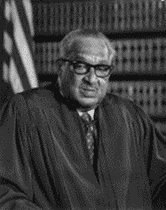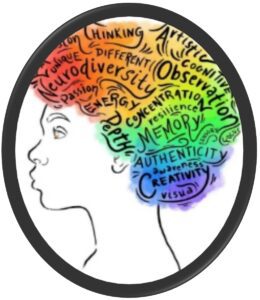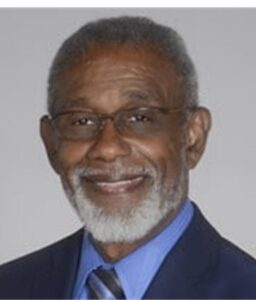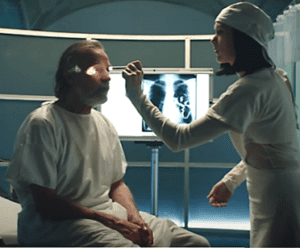By Alice Doyel
Volunteer blogger

 “In recognizing the humanity of our fellow beings, we pay ourselves the highest tribute.”
“In recognizing the humanity of our fellow beings, we pay ourselves the highest tribute.”
Thurgood Marshall, civil rights lawyer, first African American Justice of the United States Supreme Court.
Thurgood Marshall won 29 of the 32 civil rights cases he argued before the Supreme Court. He is best known for the Court’s landmark 1954 decision in Brown v. Board of Education, rejecting the separate but equal doctrine and holding segregation in public education is unconstitutional.
Cleveland Francis, Jr., MD.
Dr. Cleveland Francis specialized in Internal Medicine, Cardiology, and Nutrition at Inova Medical Group in Virginia. He has a 4.9-star evaluation score, with 344 ratings.
 Dr. Francis writes, “I was born into poverty and the segregation of southwest Louisiana. I experienced the dehumanization intended for me: separate drinking fountains and poor foundational education. I was lucky to attend an HBCU (Southern University in Baton Rouge), that gave me my bearings. I then went to some of the very best, predominantly white institutions. When I looked for a job after training, there were few integrated medical groups, so I started my own. It included practitioners who were white, Black, Jewish, Asian, Middle Eastern, Muslim, Christian, etc. We cross-covered and treated patients from every corner of the globe.”
Dr. Francis writes, “I was born into poverty and the segregation of southwest Louisiana. I experienced the dehumanization intended for me: separate drinking fountains and poor foundational education. I was lucky to attend an HBCU (Southern University in Baton Rouge), that gave me my bearings. I then went to some of the very best, predominantly white institutions. When I looked for a job after training, there were few integrated medical groups, so I started my own. It included practitioners who were white, Black, Jewish, Asian, Middle Eastern, Muslim, Christian, etc. We cross-covered and treated patients from every corner of the globe.”
10 Steps for Clinicians to Avoid Being Racist: The Francis Commitment
By Cleveland Francis, Jr., MD, On Medscape, July 15, 2022
Getting the Most From Every Patient Encounter: How to Apply the Francis Commitment
By Cleveland Francis, Jr., MD, On Medscape, August 11, 2022
NOTE: Due to requests from Dr. Francis’s readers, the second article expands on ten points listed in his first article. I have combined these articles and then edited them for length. Dr. Francis explains in full all ten of his points in the second article. I highly recommend your reading these articles.
Dr. Francis writes:
The number one issue I have dealt with in my over 40 years of practicing medicine is racism.
As a Black man who grew up in this country, I can tell you first-hand what it does to you. The scars never go away, and your status is always in question, no matter your title or uniforms of respect. Eventually it wears you down.
I have met only a handful of people in healthcare whom I would label as [racist]. But racism is structural and institutionalized so that it is often hidden.
What some caregivers may not realize is that just as clinicians have been trained to recognize subtle signs and symptoms of disease, minorities can recognize racism immediately during a medical encounter. Our past experiences make us skilled at picking up a lack of eye contact or body language and tone of voice that are dismissive and disrespectful.
A patient who has felt racism may still return for care because of insurance coverage limitations, location, or a lack of alternatives. But trust and loyalty will never develop on the part of this patient, and empathy will be absent on the part of their caregiver.
To counter this in my own practice, I developed the Francis Commitment to avoid any hint of racism or bias toward my patients.
I commit to the following:
1. I see you
2. I hear you
3. I accept who you are
4. I will try to understand how you must feel (empathy)
We have the capacity to walk in the shoes of others and we must make every effort to do so. This may help us elicit questions the patient is afraid or embarrassed to ask.
We may also come to understand that many patients have fears and anxieties that may not be obvious. With empathy we may be able to address these as we come to understand the impact of the disease process on the life of the patient.
Empathy is not synonymous with sympathy, and it can be learned.
5. Treating you is very important to me
6. I would like to gain your trust that I will do my very best to make you better
Trust is very hard to achieve in the absence of demonstrating the first five commitments.
Once trust and cooperation are established, treatment and compliance are much easier. Both the patient and the caregiver can begin to enjoy and take full advantage of future encounters.
7. I value you as a human being and will treat you as if you are family
8. I care about what happens to you
9. I want us to work together to fight this disease
10. I am grateful that you chose me as your caregiver
I away tell my patients this. We are caregivers because of our years of specialized training, but without patients to treat, we are incomplete. It’s akin to a pilot without a plane.
Our patients allow us to practice all that we have learned. If they trust us, we have a chance to play a significant role in the quality and length of their lives.
I always end my visits with a thank you to the patient. Some are taken aback and will say, “No, thank you.”
Many colleagues complain to me that this takes time. It does not take nearly as much time as we think, especially if it becomes second nature.
A lot of the biases that we unconsciously carry in our heads and hearts have no basis in reality and were placed there without our permission by parents, society, and friends. But we can replace these divisive thoughts and impulses.
What’s in your heart can only be known and controlled by you.
“Doctor My Eyes” Written & Sung by Jackson Browne 50 Years Ago
 https://youtu.be/_cqoI65z-jo (2 min, 50 sec) April 1972
https://youtu.be/_cqoI65z-jo (2 min, 50 sec) April 1972
“Doctor My Eyes” is the statement of a man who had stoically endured life’s hardships, but having done so, now worried that he had been rendered unable to feel anything.
Jackson Browne experiences life with his eyes and heart open. He advocates for the environment, human rights, and arts education. He co-founded Musicians United for Safe Energy and Nukefree.org. He is a member of Ocean Elders.
This image of Jackson Browne is from his 2021 release, “My Cleveland Heart.” https://www.youtube.com/watch?v=8_gWWzLph24
A “Cleveland Heart” is an artificial heart made by the Cleveland Heart Institute, a renowned medical device maker. In the song, Browne wants a new heart because his old heart keeps making mistakes. Browne wants a heart that doesn’t ache, a heart that doesn’t break.
Lyrics to “Doctor My Eyes”
Doctor, my eyes have seen the years
And the slow parade of fears without crying
Now I want to understand
I have done all that I could
To see the evil and the good without hiding
You must help me if you can
Doctor, my eyes
Tell me what is wrong
Was I unwise to leave them open for so long?
‘Cause I have wandered through this world
And as each moment has unfurled
I’ve been waiting to awaken from these dreams
People go just where they will
I never noticed them until I got this feeling
That it’s later than it seems
Doctor, my eyes
Tell me what you see
I hear their cries
Just say if it’s too late for me
Doctor, my eyes
They cannot see the sky
Is this the prize
For having learned how not to cry?